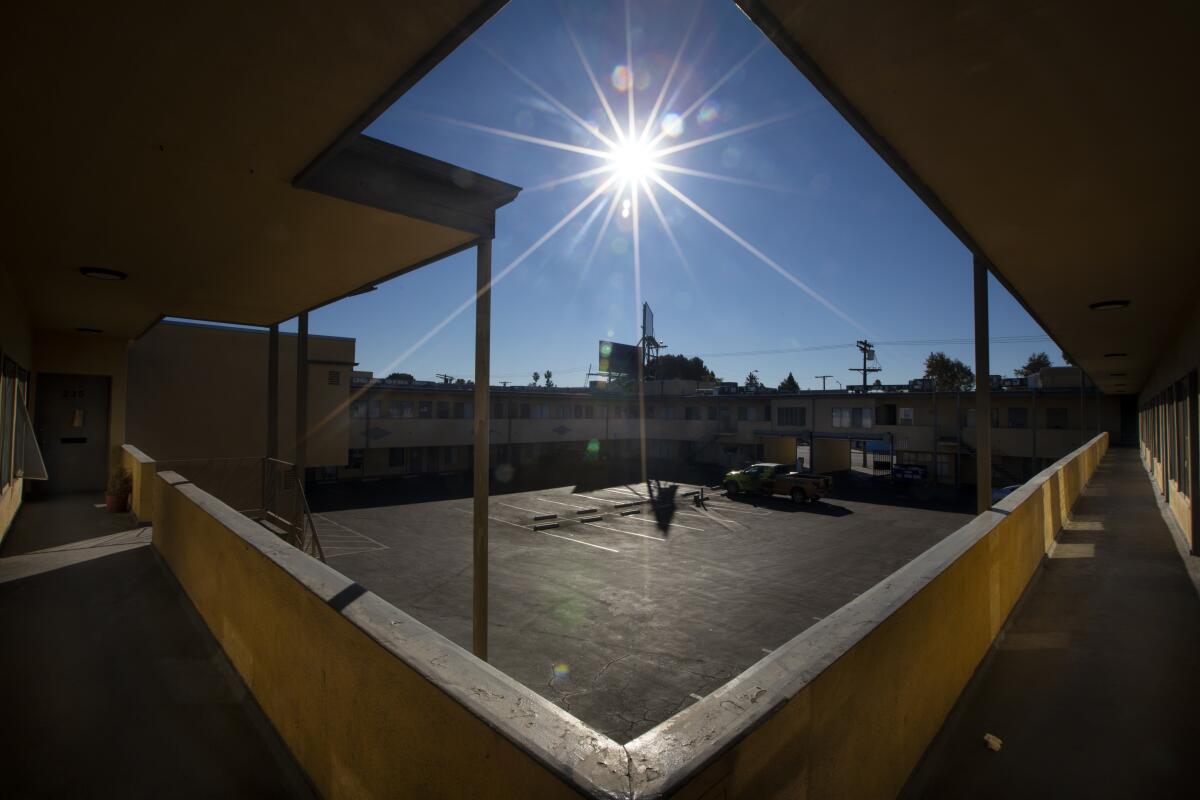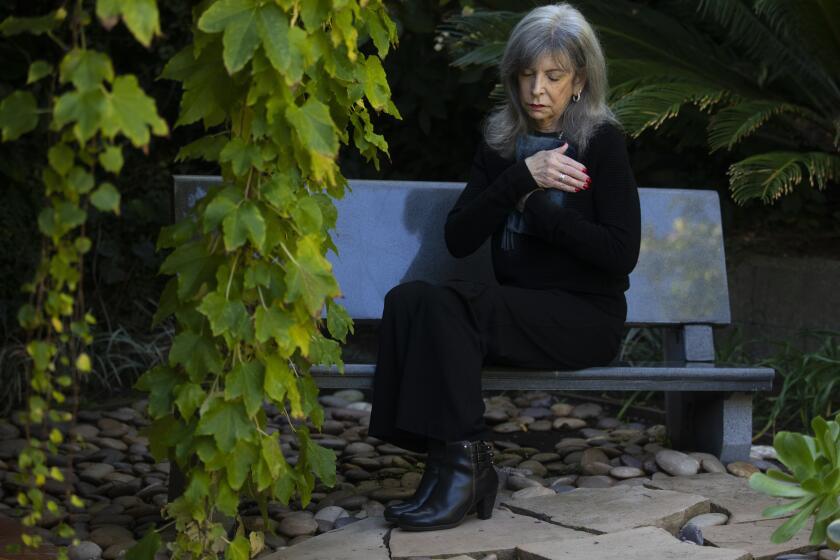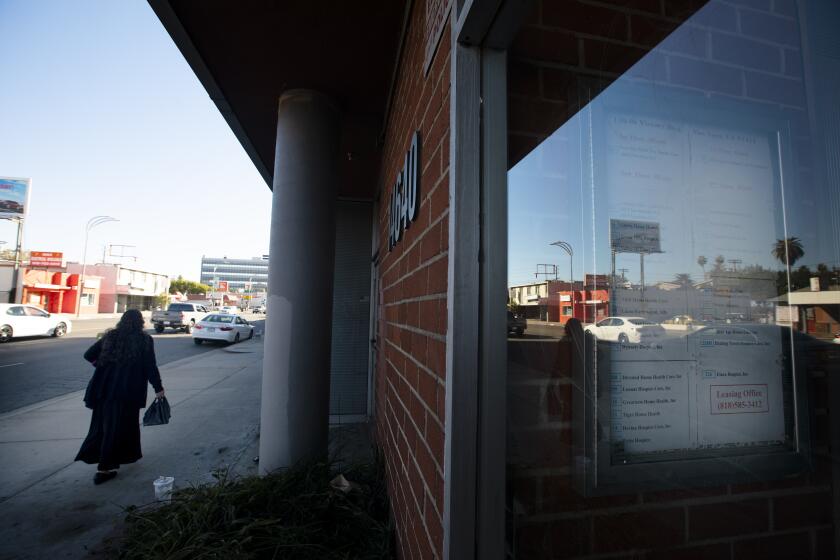Congress approves hospice care reforms to improve oversight, transparency

- Share via
Hefty fines, the suspension of Medicare payments and other new measures to increase oversight and transparency in the fast-growing hospice industry are set to become law as part of the omnibus spending bill approved by Congress this week.
The reforms had been included in the bipartisan HOSPICE Act co-sponsored by U.S. Reps. Jimmy Panetta (D-Carmel Valley) and Tom Reed (R-N.Y.). That bill was passed by the House earlier this month and then folded into the $1.4-trillion spending package sent to President Trump for his signature.
The new measures will address some of the serious flaws in hospice care highlighted by a recent Los Angeles Times investigation that found widespread fraud and hundreds of instances in which California patients were harmed, neglected or put at risk, their mistreatment sometimes made worse by major gaps in government oversight.
Quality-of-care failures ranged from mismanaged medications to neglected wounds infested with maggots, to nurses and home health aides repeatedly missing appointments or sleeping on the job as patients lay writhing in pain.
Even in the face of such failures, hospices — which are certified by Medicare and overseen by the California Department of Public Health — have rarely been penalized, largely because they are regulated far less rigorously than other healthcare providers, The Times found.
While nursing homes and hospitals are subject to a number of fines and civil enforcement actions, current hospice regulations do not provide for those penalties. Except when criminal charges are filed, most violations are resolved by state regulators when hospices submit corrective action plans, which are little more than promises to do better.
Nowhere has the hospice industry’s growth been more explosive, and its harmful side effects more evident, than in Los Angeles County.
At the federal level, the only available sanction is cutting off Medicare funding and excluding bad actors from the program, a rarely imposed penalty.
The bill passed this week would rectify some of those shortcomings. Its provisions include potential fines of up to $10,000 a day for hospice providers who do not comply with regulations. It also provides for improvements to inspections, including the establishment of a program that would put a “special focus” on poor performers.
The bill also increases transparency by requiring the public disclosure of all inspection results. Currently, inspections performed by accreditation organizations, which are hired by the hospices, are kept confidential. More than 80% of California hospices choose accreditation, compared with about half nationwide.
Until 2015, Medicare mandated hospices to be inspected only once every six years. That time frame has been shortened to once every three years, but inspections remain less frequent than those required annually for nursing homes.
Panetta’s original bill would have shortened the time to two years, but the provision was dropped amid pushback from the industry.
Edo Banach, who heads the National Hospice and Palliative Care Organization, said his industry group “supports smart oversight when it does not hinder access to high-quality care for patients and their families,” but added that it should not overreach.
“Hospice providers that are following the rules should not be subjected to excessive administrative burden and forced to needlessly divert resources from patient care,” he said.
A Times investigation found care failures at hospices, including mismanaged medications, neglected wounds and missed appointments.
A spokesperson for the Centers for Medicare and Medicaid Services said the agency is reviewing the legislation and had no comment.
Longtime critics and patient advocates welcomed passage of the bill but said it did not go far enough.
“The three-year survey process is completely inadequate — it should be one year or two at the most,” said Charlene Harrington, a UC San Francisco nursing professor emeritus who formerly worked for the state Department of Public Health.
Harrington applauded other provisions, however, including beefing up enforcement actions to make them more consistent with those for nursing homes.
She also said more needs to be done to tighten ownership requirements for hospices, which have boomed in numbers nationwide, but especially in California. In Los Angeles County, providers have multiplied sixfold in the last decade, many of them operated by owners with no healthcare background.
Choosing a reputable hospice can be a challenging task at an emotional time for families.
“The problem is that there is no criteria for who can own and operate a hospice, so ... anyone without regard to background or expertise is allowed to establish a hospice,” she said.
Michael Connors, a patient-care advocate with California Advocates for Nursing Home Reform, also called for better vetting of prospective operators and ending the practice of hired accreditation agencies “deeming” their client providers to be in compliance with regulations.
“The bill is a good initial step,” he said, “but much more needs to be done to improve oversight of hospices and prevent the rampant fraud and abuse that exists today.”
More to Read
Sign up for Essential California
The most important California stories and recommendations in your inbox every morning.
You may occasionally receive promotional content from the Los Angeles Times.


















